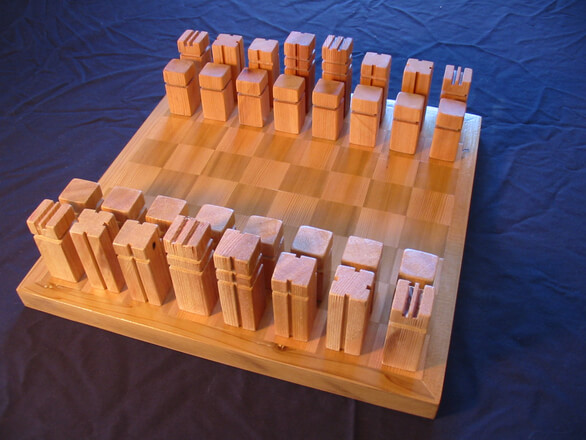 Recently, a Division Bench of Delhi High Court clarified the scope of section 134 of the Trade Marks Act, 1999 (Act). In the suit filed by Exxon (Plaintiff No. 1) against P.K. Sen, Exxon argued that Delhi High Court has the jurisdiction under section 134 (2) of the Act to try the suit as the Plaintiff no. 2(subsidiary of Plaintiff No. 1)has registered office in New Delhi and is the permitted user of the EXXON mark in India. The Single Judge accepted the argument of the Plaintiffs and held that the Delhi High Court had territorial jurisdiction to entertain the suit of infringement of trademark. Subsequently, the appeal was filed against the impugned order and the Division Bench set aside the single judge’s findings on the following grounds:
Recently, a Division Bench of Delhi High Court clarified the scope of section 134 of the Trade Marks Act, 1999 (Act). In the suit filed by Exxon (Plaintiff No. 1) against P.K. Sen, Exxon argued that Delhi High Court has the jurisdiction under section 134 (2) of the Act to try the suit as the Plaintiff no. 2(subsidiary of Plaintiff No. 1)has registered office in New Delhi and is the permitted user of the EXXON mark in India. The Single Judge accepted the argument of the Plaintiffs and held that the Delhi High Court had territorial jurisdiction to entertain the suit of infringement of trademark. Subsequently, the appeal was filed against the impugned order and the Division Bench set aside the single judge’s findings on the following grounds:
- Single Judge heavily relied on Exphar S.A. and Another V Eupharma Laboratories Limited and Another wherein Supreme Court interpreted Section 62 (2) of the Copyright Act, 1957. The Division Bench observed that decision rendered in Exphar was a case pertaining to the Copyright Act, 1957 and there is no concept of use, permitted or registered under the Copyright Act. The concept of the “person instituting a suit” under the Copyright Act is different from that of a “person instituting a suit” under the Trade Marks Act. This concept has to be considered in the context of the Trade Marks Act and in the backdrop of the expressions “proprietor of the registered trademark”, “registered user” and “permitted user”. Since these expressions do not find place in Copyright Act, Exphar judgment would not be apposite.
- Interpreting various provisions of the Act, Division Bench held thatin addition to registered proprietor, only the “registered user” has been given right to institute the infringement proceeding in his own name. Placing reliance on Section 53 and Section 2 (1) (r) (ii) of the Act, it was held that suit for infringement of trademark cannot be instituted by permitted userwhich is Plaintiff No. 2 in the present case.
- The expression “where there are more than one such persons” as mentioned in Section 134 of the Act, would refer to persons who are entitled to institute the suit. Hence, the Plaintiff No. 2 being a permitted user cannot be covered by such expression.
- The definition of “person” which includes the registered proprietor and registered user is of the inclusive kind and not of a restrictive or exhaustive nature. The person would not include a permitted user suing for infringement of trademark due to express prohibition under Section 53 of the Act.
- Referring to alternative plea of mis-joinder and deletion of Plaintiff No. 2 as co- plaintiff, the court held that if the suit was instituted only by Plaintiff No. 1, it would have to demonstrate that only did it carry on business through the Plaintiff no. 2 in Delhi and that the cause of action also arose in Delhi.As the Defendant is located in Kolkata, no cause of action arose in Delhi.
- Relying on Ultra Home Construction Pvt. Ltd V Purushottam Kumar Chaubey and Others, the Court considered the four following scenarios in the present case:
| Sr. No. | Place of Plaintiff’s Principal Office | Place of Plaintiff’s subordinate/branch office | Place where cause of action arose | Place where Plaintiff can additionally sue under Section 134 (2) of the Trademarks Act and Section 62 (2) of the Copyright Act |
| 1 | A | — | C | A |
| 2 | A | B | A | A |
| 3 | A | B | B | B |
| 4 | A | B | C | A |
Applying the above principle and specifically the scenario at Sr. No. 4, the Bench held that even if the use of the trade mark by the Plaintiff No. 2 is to be deemed to be the use of the trademark by the Plaintiff No. 1 and the office of the Plaintiff No. 2 is the subordinate/branch office of Plaintiff No. 1, the additional benefit of Section 134 (2) of the Act would not be available to the Plaintiff No. 1. The place where the Plaintiff No. 1 could additionally sue under Section 134 (2) of the Act would be in USA which is not available as the Act is territorial in nature.
With this clarification on Section 134 (2) of the Act, it becomes significant for the Registered Proprietor specifically the foreign entities to carefully choose the appropriate jurisdiction so that the plaint is not straightway returned. The Foreign Entities may opt to get the status of “registered user” for their Indian subsidiary in order to fully enjoy the benefit of Section 134 (2) of the Act.



